|
From the IAMS President
I am happy to report encouraging progress on many fronts as the Toronto 2012 Conference takes shape. The provisional basic program can be viewed by clicking on this link: www.missionstudies.org/db/newsletter/files/Provisional_Program_Oct_17_2011.pdf
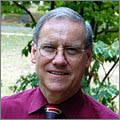 Responses to our appeals for financial assistance have been encouraging. We are aiming to raise a total of $176,000 (Canadian) in support of the Toronto 2012 conference. Most of this money will be to provide scholarships for conference delegates from financially poor countries. As of this writing, we have received $76,600 in pledges and actual contributions. We are in consultation with approximately thirty other organizations and potential donors to raise the balance of $99,400. Responses to our appeals for financial assistance have been encouraging. We are aiming to raise a total of $176,000 (Canadian) in support of the Toronto 2012 conference. Most of this money will be to provide scholarships for conference delegates from financially poor countries. As of this writing, we have received $76,600 in pledges and actual contributions. We are in consultation with approximately thirty other organizations and potential donors to raise the balance of $99,400.
The conference website has been beta tested for the past several months, and will go up on line in November. As soon as it is ready, you will be notified and urged to apply as early as possible, since registrations will be capped at 180, due to budgetary and logistical considerations.
Please take note of the calls for papers issued by the leaders of study groups. Several of these were published in the September-October issue of IAMS Matters. They can be accessed by clicking on the link provided under the relevant study group. The others are published in this issue.
Finally, I would urge you to remember that the main item on the agenda of the business meeting scheduled for August 18, Saturday, will be the election of a new executive. Please familiarize yourself with IAMS bylaws relating to the nomination and election of candidates. There is a link to the website where these bylaws can be studied at the end of Cathy Ross's report.
Jonathan Bonk
President
Email: bonk@omsc.org
From the General Secretariat
 Greetings to everyone from an autumnal Oxford. At our last Executive teleconference meeting in September we accepted 18 new members so a warm welcome to all of you and thank you to all those who sponsored new members. We are always keen to welcome new members on board so do encourage your colleagues to join. And if you know of lapsed members or of folk who have not heard from us for a while, it may be that their contact details are out of date - please do encourage them to update on the website. We do need accurate details in order to keep in touch. Greetings to everyone from an autumnal Oxford. At our last Executive teleconference meeting in September we accepted 18 new members so a warm welcome to all of you and thank you to all those who sponsored new members. We are always keen to welcome new members on board so do encourage your colleagues to join. And if you know of lapsed members or of folk who have not heard from us for a while, it may be that their contact details are out of date - please do encourage them to update on the website. We do need accurate details in order to keep in touch.
Conference planning is well underway. The conference website should be live for registration by the end of November.
At the conference we will need to nominate a new Executive. May I ask you to begin prayerfully considering whom you may like to nominate. The process for this is explained in our byelaws on the front page of the website in a pdf file. Here is the link: www.missionstudies.org/wp-content/uploads/2011/08/iams-governance-manual-v0110811.pdf.
Looking forward to seeing many of you next year.
Grace and peace
Cathy Ross
General Secretary
Email: cathy.ross@ripon-cuddesdon.ac.uk
From the Conference Organizer
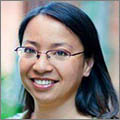 The Canadian host committee is looking forward to welcoming you to Toronto. With apologies for the delay, we are waiting for a couple of things to fall into place before we open up the online registration process. Once we are ready to take registrations, please do register as soon as possible, especially those who need to apply for Temporary Resident Visas or those who are planning to apply for subsidies. We hope that everyone can contribute a minimum of $200 CDN towards registration fees, but appreciate that not everyone can cover the full costs of travel and conference fees. The deadline to apply for a subsidy is January 31st. After January 31st, 2012 the executive committee will review and decide on all applications. Unfortunately, we are not able to pay for any travel expenses incurred in order to obtain Temporary Resident Visas to Canada. The Canadian host committee is looking forward to welcoming you to Toronto. With apologies for the delay, we are waiting for a couple of things to fall into place before we open up the online registration process. Once we are ready to take registrations, please do register as soon as possible, especially those who need to apply for Temporary Resident Visas or those who are planning to apply for subsidies. We hope that everyone can contribute a minimum of $200 CDN towards registration fees, but appreciate that not everyone can cover the full costs of travel and conference fees. The deadline to apply for a subsidy is January 31st. After January 31st, 2012 the executive committee will review and decide on all applications. Unfortunately, we are not able to pay for any travel expenses incurred in order to obtain Temporary Resident Visas to Canada.
Please visit the Citizenship & Immigration Canada website to determine whether or not you need a Temporary Resident Visa to travel to Canada: www.cic.gc.ca/english/visit/visas.asp
All members will be notified at once by email, with a link, as soon as the online registration is ready.
Kind regards,
Ann Chow
From the IAMS Treasurer
 The IAMS committee elected at Port Dickson, Malaysia planned and executed the conference at Balaton, Hungary in 2008. The new committee of IAMS which took over from this point on has been working steadily towards the next quadrennial conference in 2012. The IAMS committee elected at Port Dickson, Malaysia planned and executed the conference at Balaton, Hungary in 2008. The new committee of IAMS which took over from this point on has been working steadily towards the next quadrennial conference in 2012.
IAMS' financial history shows that usually the year following the quadrennial conferences is that of modest surplus. The year following Balaton in 2008 was an exception to this general rule. This owed largely to a comparatively more expensive conference in Balaton (US$319,186) than in Port Dickson ($148,489).
This can be easily explained by (among other things): location of the conference and subsidies. i). A large number of members compared to the Port Dickson conference in Malaysia required travel and registration subsidies in the 2008 Balaton conference. The increase in subsidies reflected not just larger numbers but greater participation from the majority world. ii). Since the conference took place at a location distant from the capital, additional cost was incurred in transporting participants to the venue or from it, thus addition to the overheads.
This has been a useful experience for the new committee but, on the downside, this has meant too that this committee did not have surplus funds for the intervening 'non-conference years'.
Following (rather obvious) steps to manage its limited inherited resources in the lead up to the next conference were taken with some success: i). reduction in expenses where possible and ii). increase in income to bridge the gap between income and expenditure. The reduction in expenses was aimed through: a). relocation and streamlining of the secretariat (including the treasury); b). whittling down the old list of members to the actual paid members leading to the reduction in the payments due to Brill; c). conducting IAMS business through email/Skype and mainly through telephone conference. On the other hand, efforts towards increasing IAMS' income were made through: a). renewed appeals to lapsed members both individual and corporate; b). a new user-friendly website with clear platforms for members and potential members for checking their status, making payments for membership and donations through multiple options; b). appeals to potential existing/donors for specific projects such as DABOH and the 2012 conference expenses and sponsorships.
The 2012 conference year is going to be the most active year since 2008. I am happy to say that IAMS has succeeded steadily in reducing the size of its deficit since 2008. We have not had the surplus we wished we had, but we have managed to remain in the black. As for the conference, in 2011, against the projected expenses of over 240,000 CAD, we have been promised grants of up to 76,000 CAD. Clearly there is a gap. This is to be bridged mainly through revenue from registrations which is likely to range from 160,000-190,000. Our members and donors are already working with us to make sure we have what we need and when we need it to cover expenses leading up to the conference and, at the conference, to disburse scholarships from the specific grants and donations for this purpose. We hope to have a great conference next year.
David Singh
Treasurer
Email: dsingh@ocms.ac.uk
Update: Fundraising Report
Twelve organizations have so far contributed or pledged a total of $76,600 toward support of the Toronto 2012 Conference.
- Lunds Missonssällskap
- Zonneweelde, Netherlands
- ASM — USA
- AAMS — Australia
- OMSC — USA
- Church of Scotland
- Marion Breen Foundation
- Danish Mission Council
- FTESEA, USA
- Egede Institute
- EMW, Germany
- Reformed Church in America
We are working to raise an additional $99,000 toward scholarships and conference costs.
Jonathan Bonk
President
Email: bonk@omsc.org
Migration, Religion and Identity: Missiological Theoretical Issues
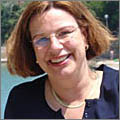 The twentieth and twenty-first centuries have seen an increase in human mobility due to voluntary or enforced migration as well as due to improved means of communication and travel. Thus, the realm of living of individuals as well as groups has expanded, with many having the experience of living in more than one geo-political or cultural territory and with large numbers of people living as individuals or as ethnic minority groups in places different from their country of origin. More and more people consciously experience their double- or multiple-cultural and/or religious belongings (Alejando Portes). Stephen Castles and Anthony McGrew have underlined the increased interconnectedness this implies, resulting in the establishment of transnational (Nina Glick Schiller et al.) or globally-stretched (Steven Vertovec) networks (Nina Glick Schiller et al.). Mirroring these developments, John Tomlinson has pointed to the decrease in importance of issues like location, territoriality and nation states, a development for which he coined the term 'deterritorialisation'. The twentieth and twenty-first centuries have seen an increase in human mobility due to voluntary or enforced migration as well as due to improved means of communication and travel. Thus, the realm of living of individuals as well as groups has expanded, with many having the experience of living in more than one geo-political or cultural territory and with large numbers of people living as individuals or as ethnic minority groups in places different from their country of origin. More and more people consciously experience their double- or multiple-cultural and/or religious belongings (Alejando Portes). Stephen Castles and Anthony McGrew have underlined the increased interconnectedness this implies, resulting in the establishment of transnational (Nina Glick Schiller et al.) or globally-stretched (Steven Vertovec) networks (Nina Glick Schiller et al.). Mirroring these developments, John Tomlinson has pointed to the decrease in importance of issues like location, territoriality and nation states, a development for which he coined the term 'deterritorialisation'.
Steven Vertovec has stressed, that though groups of people may share the experience of migration, migrants – even when they come from the same ethic background - form a highly diversified group (hyperdiversity), have very different migration stories; yet they are connected to real localities and territories. The above-mentioned theoretical approaches and the developments they refer to, pose profound questions to key missiological concepts such as inculturation and contextualization. What are the worlds, the cultures, the contexts in which people who have a migration (hi)story live? How do the actual locations of residence and former locations of residence interact with each other? Do they coincide or partly overlap or is the actual location of residence a mere coincidence? And how do these developments shape Christianity and shape individual and communal identities? What is the meaning of terms like 'inculturation' and 'contextualisation' in context of migration? Do they lose their validity? Do they need reconceptualisation or do alternate terms need to be developed?
This study group calls for papers that address the above mentioned issues. The papers can either take a purely theoretical approach or address a concrete case-study in the light of the above questions, drawing out building blocks for theoretical reflections.
For abstracts (300 words) or questions, please contact:
Prof. Dr. Martha Frederiks (m.t.frederiks@uu.nl)
Dr. Dorottya Nagy (dorottya.nagy@kre.hu)
Prof. Dr. Lalsangkima Pachuau (kima.pachuau@asburyseminary.edu)
Martha Frederiks
Prof. of Missiology: World Christianity and Interreligious Dialogue
Department of Religious Studies and Theology, Faculty of Humanities Utrecht University
Email: m.t.frederiks@uu.nl
Documentation, Archives, Bibliography and Oral History Update
Dear DABOH Friends,
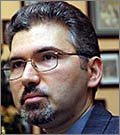 I am writing you for the first time as co-chair of our group. We joyously welcome the publication of the IAMS MATTERS, our bimonthly newsletter. It will enable us to keep in touch with each other fostering and nurturing our sense of “us”. You can expect a copy of this letter to arrive in your email box every two months. Jon Bonk has indicated the principal goals of this newsletter: “It is intended to: (1) keep all of us current on the activities and plans of our eight study groups, (2) apprise us on Mission Studies editorial and production issues, and (3) provide updates and pertinent information on the Toronto 2012 Assembly”. As you have noted, other groups of IAMS have already published news and information. We need every member of our group to feel equally responsible and able to contribute generously to this exchange of news. I am writing you for the first time as co-chair of our group. We joyously welcome the publication of the IAMS MATTERS, our bimonthly newsletter. It will enable us to keep in touch with each other fostering and nurturing our sense of “us”. You can expect a copy of this letter to arrive in your email box every two months. Jon Bonk has indicated the principal goals of this newsletter: “It is intended to: (1) keep all of us current on the activities and plans of our eight study groups, (2) apprise us on Mission Studies editorial and production issues, and (3) provide updates and pertinent information on the Toronto 2012 Assembly”. As you have noted, other groups of IAMS have already published news and information. We need every member of our group to feel equally responsible and able to contribute generously to this exchange of news.
We await your reports of your activities, encounters, congresses, publications, projects, etc. You can send them to the following addresses:
iamsmatters@missionstudies.org
m.rostkowski@urbaniana.edu
Grace and peace to you.
For information online: www.missionstudies.org/index.php/study-groups/daboh/
P. Marek A. Rostkowski, OMI
Direttore della Biblioteca della Pontificia Università Urbaniana
Email: direttore.biblioteca@urbaniana.edu
Michael Nai Chiu Poon
Director and Asian Christianity Coordinator of the Centre for the Study of Christianity in Asia
Trinity Theological College
Email: mncpoon@gmail.com
DABOH Update: Historical Archives of the Sacred Congregation for the Evangelization of Peoples or “de Propaganda Fide” has his web site!
The Congregation for the Evangelization of Peoples (C.E.P.) was established by Pope Gregory XV with the publication of the Papal Bull Inscrutabili Divinae Providnetiae (June 22, 1622). Soon after, other foundational papal documents followed: Romanum decet (published on the same day), Cum inter multiplices (December 14, 1622), Cum nuper (June 13, 1623), and Immortalis Dei (August 1, 1627). Until 1982 it was known as The Congregation for the Propagation of the Faith or Propaganda Fide.
The task of the Congregation has always been the transmission and dissemination of the faith throughout the whole world. It was given the specific responsibility of coordinating and guiding all the Church's diverse missionary efforts and initiatives. These include: the promotion and the formation of the clergy and of local hierarchies, encouraging new missionary institutes, and providing material assistance for the missionary activity of the Church. Thus, the newly established Congregation became the ordinary and exclusive instrument of the Holy Father and of the Holy See in its exercise of jurisdiction over all of the Church's missions and over missionary cooperation.
The Historical Archives of the Congregation for the Evangelization of Peoples is the principal missionary archive in the Catholic Church.
New web site: www.archiviostoricopropaganda.va/

P. Marek A. Rostkowski, OMI
Direttore della Biblioteca della Pontificia Università Urbaniana
Email: direttore.biblioteca@urbaniana.edu
DABOH Update: Global Digital Library on Theology and Ecumenism
GlobeTheoLib is a global online library that covers theology and ecumenism. It offers free-of-charge access for individual registered users (such as theological researchers, educators and students) to documents and resources on intercultural theology and the international ecumenical movement, including contextual theologies, church and society issues, mission, and the history of Christian denominations. GlobeTheoLib is directed particularly towards individuals active in theological education, research and publication in the countries and churches of Africa, Asia, Latin America, Pacific and Caribbean and in Eastern and Central Europe. It provides a new model for sharing theological knowledge and resources across national, cultural and denominational barriers in order to make the theological voices and resources of the South more visible and accessible.
GlobeTheoLib aims to support and enable well-equipped participation in the teaching of theology, the generation of ecumenical and intercultural perspectives and the formation of a new generation of ecumenical leaders.
GlobeTheoLib offers:
- a single online library to bring together theological resources available free-of-charge on the Internet but dispersed among multiple sites and institutions;
- multilingual access to full text content, not only references;
- access to journals, magazines, books, training material, dissertations and news documents on theology and ecumenism, with a focus on full text documents, open to all;
- free-of-charge access for individual registered participants to licensed content such as journals and e-books from commercial digital content providers;
- contemporary content, not only historical documents;
- the opportunity for registered participants to upload content through an online submission system;
- interactive Web 2.0 potential for exchange and sharing of information and knowledge, through wikis, blogs, forums, workgroups, and online communities;
- one common platform offering greater opportunities for increased interreligious dialogue and interdisciplinary research in theology and religious studies.
GlobeTheoLib aims to:
- use new digital models of information exchange to create greater visibility for theological knowledge and insights from churches of the global South;
- make use of information and communication technologies to counter imbalances in global theological education systems;
- respond to the needs of theological colleges, faculties and institutes of growing churches in the global South for quality resources for theological education and research;
- overcome barriers to accessing existing digital, content providers, particularly in the global, South;
- promote understanding of the diverse expressions and understandings of Christianity worldwide;
- foster theological, exchange within and between countries and regions, particularly of the global South.
GlobeTheoLib is for:
- Individual, users theological researchers, educators and students (who can up-load/download full-text sources)
- Theological libraries (facilities for specialized theological collections) Associations of theological libraries (a common global, platform)
- Associations of theological schools (Masters and doctoral, dissertations and theses; e-courses)
- Churches and specialized ministries (strengthening common research)
- Content providers (wider spectrum of users)
- Regional ecumenical organizations and Christian World Communions (documentation of ecumenical, archives)
GlobeTheoLib uses the platform of Globethics.net, which already holds more than 500,000 full text documents in its Global Digital Library on Ethics, and which has been online since October 2008.
Content for GlobeTheoLib comes from the following main sources:
- Commercial providers: GlobeTheoLib makes commercial, content accessible to individual registered participants in the framework of institutional, subscription fees or content purchase through negotiation with publishers.
- Open repositories: GlobeTheoLib harvests existing Open Access repositories using a list of relevant keywords in several, languages.
- Partner institutions: GlobeTheoLib offers partner institutions the opportunity to submit their own documents to the online library and to build specialized collections.
- Individual participants: GlobeTheoLib allows registered participants to submit their own documents to the online database.
In addition, in its effort to give greater exposure to resources on theology and ecumenism from all parts of the world, and especially to those from the global, South, GlobeTheoLib provides, in partnership with a service provider, an electronic journal, publishing platform.
GlobeTheoLib is being launched in late 2011.
For more information contact:
Dr. Stephen Brown, Programme Executive, GlobeTheoLib,
Globethics.net, 150 rte de Ferney, CH-1211 Geneva 2, Switzerland
Email: brown@globethics.net
Tel: +41-22 791 6342
Fax: +41-22 710 23 94
Global Digital Library for Theology and Ecumenism (GlobeTheoLíb)
List of Consortíum members (Date: 8 June 2011)
- World Council of Churches
- Globethics.net
- Anglican Communion
- Lutheran World Federation (LWF)
- World Methodist Council (WMC)
- World Communion of Reformed Churches (WCRC)
- All Africa Conference of Churches (AACC)
- Christian Conference of Asia (CCA)
- Latin American Council of Churches (CLAI)
- Red Latinoamericana de Información Teológica (RLIT)
- University Institute ISEDET (Argentina)
- Conference of Orthodox Theological Schools (COTS)
- World Conference of Associations of Theological Institutions (WOCATI)
- Forum of Asian Theological Librarians (ForATL)
- Association for Theological Education in South East Asia (ATESEA)
- Foundation for Theological Education in South East Asia (FTE)
- Institut Catholique de Paris
- University Library of Tübingen (VirTheo)
- Volos Academy for Theological Studies
- Mission 21 Basel
Pending
- Conference of European Churches (tbc)
- Pacific Conference of Churches (tbc)
- International, Federation of Catholic Universities (FIUC) (tbc)
- Indian Theological Library Association (ITLA) (tbc)
- Bibliothèques Européennes de Théologie (BETH) (tbc)
P. Marek A. Rostkowski, OMI
Direttore della Biblioteca della Pontificia Università Urbaniana
Email: direttore.biblioteca@urbaniana.edu
World Christianity
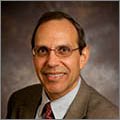 Since its beginnings in the resurrection of Jesus and the day of Pentecost, the Christian faith has been on the move. The first Church historian, St. Luke, predicted that the small and vulnerable group of Jesus followers, only recently calling themselves “Christian,” would fan out to the ends of the earth, carrying their good news with them, witnessing to its truth and power, inviting others to believe it, with some successful results. Thus one of the defining characteristics of the religion called Christianity is that it is found all over the world, among the most diverse peoples, being interpreted and lived out in quite an astonishing array of ways. The IAMS conference at Toronto in 2012 will give us a chance to focus on two of the factors that have led to the spread of the gospel of Jesus Christ, namely migration and human dislocation. Again, such factors have been present in the Christian movement since its first generation, as Luke tells us when he recounts the persecution that scattered the followers of Jesus into the Roman Empire. The World Christianity group at the Toronto meeting welcomes all paper proposals in which the intersection between World Christianity and human migration and dislocation are explored. Since its beginnings in the resurrection of Jesus and the day of Pentecost, the Christian faith has been on the move. The first Church historian, St. Luke, predicted that the small and vulnerable group of Jesus followers, only recently calling themselves “Christian,” would fan out to the ends of the earth, carrying their good news with them, witnessing to its truth and power, inviting others to believe it, with some successful results. Thus one of the defining characteristics of the religion called Christianity is that it is found all over the world, among the most diverse peoples, being interpreted and lived out in quite an astonishing array of ways. The IAMS conference at Toronto in 2012 will give us a chance to focus on two of the factors that have led to the spread of the gospel of Jesus Christ, namely migration and human dislocation. Again, such factors have been present in the Christian movement since its first generation, as Luke tells us when he recounts the persecution that scattered the followers of Jesus into the Roman Empire. The World Christianity group at the Toronto meeting welcomes all paper proposals in which the intersection between World Christianity and human migration and dislocation are explored.
Arun W. Jones
Dan and Lillian Hankey Associate Professor of World Evangelism
Candler School of Theology
Emory University
Email: arun.w.jones@emory.edu
Update: Environment and Mission Study Group
 Please see previous issue for most recent report. Please see previous issue for most recent report.
Allison M. Howell
Email: amaryhow@hotmail.com
Allison Howell is an Associate Professor and the Dean of Accredited Studies at the Akrofi-Christaller Institute. She also works with a program on writing Bible Commentaries in Ghanaian languages. She has an ongoing interest and involvement in mission and the environment.
Healing / Pneumatology
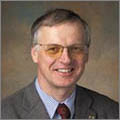 Please see previous issue for most recent report. Please see previous issue for most recent report.
Christoffer Grundmann
John R. Eckrich Prof. in Religion and the Healing Arts
Valparaiso University, Valparaiso, Indiana USA
Email: Christoffer.Grundmann@valpo.edu
Update: Mission Studies; Journal of the IAMS
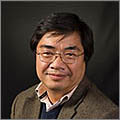 Please see previous issue for most recent report. Please see previous issue for most recent report.
Lalsangkima Pachuau
Editor
E-mail: editor@missionstudies.org
Update: Biblical Studies and Mission
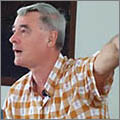 Please see previous issue for most recent report. Please see previous issue for most recent report.
John Prior
BISAM Coordinator
Email: johnotomo46@gmail.com
Update: Gender
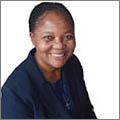 Please see previous issue for most recent report. Please see previous issue for most recent report.
Rose Uchem MSHR
Regional Representative Africa
E-mail: nkeonyereu4@hotmail.com
Update: Interfaith Issues in Toronto
Please see previous issue for most recent report.
David Singh
Treasurer
Email: dsingh@ocms.ac.uk
Response / Opinions / Suggestions
We would like to hear from you.
Executive Members Nominations
Please review the 'Procedure for the election of President, Vice President, and other members of the Executive Committee' in the Byelaws on page 5: www.missionstudies.org/wp-content/uploads/2011/08/iams-governance-manual-v0110811.pdf#page=5.
A Call for Papers for the 13th IAMS Assembly
August 15–20, 2012
Toronto, Canada
Migration, Human Dislocation, and the Good News:
Margins as the Center in Christian Mission
The IAMS 2012 Toronto Assembly will explore the profound missiological dimensions of human migration and dislocation, past, present, and future. We will attend especially to the many repercussions of widespread contemporary human movement for the theory and practice of Christian mission.
 The Hebrew and Christian Scriptures, reflecting the lives of God's people who were uprooted, exiled, and scattered, feature epic experiences of human mobility like the call to a new land, exodus and resettlement, and the scattering of the early Christians. The last half-millennium has seen the Gospel span the globe, often accompanied by the disenfranchisement and sometimes obliteration of other peoples. Dislocation, compelled and voluntary, continues to characterize our contemporary human story as people cross state boundaries or move within their own countries in search of safety or well-being. Christian mission, often a feature of large-scale movements of peoples, must continue to attend responsibly to these historic global realities. The Hebrew and Christian Scriptures, reflecting the lives of God's people who were uprooted, exiled, and scattered, feature epic experiences of human mobility like the call to a new land, exodus and resettlement, and the scattering of the early Christians. The last half-millennium has seen the Gospel span the globe, often accompanied by the disenfranchisement and sometimes obliteration of other peoples. Dislocation, compelled and voluntary, continues to characterize our contemporary human story as people cross state boundaries or move within their own countries in search of safety or well-being. Christian mission, often a feature of large-scale movements of peoples, must continue to attend responsibly to these historic global realities.
We welcome papers on mission and diverse aspects of human mobility from across the disciplines. These can touch upon a range of themes including ethnicity, race, gender, HIV-Aids, human rights, violence, poverty, nationalism, other religion s , and ecclesiastical tradition . In addition, we urge IAMS Study Group members to prepare papers and share research, especially as these relate to the Assembly's migration theme.
Study Groups:
Previous study groups have organized around: Healing and Pneumatology; Biblical Studies and Mission; *Women in Mission; History; *Interreligious Relations; *Globalization and Mission; *Ethnic Minorities and Mission; Documentation, Archives, Bibliography and Oral History; and Environment and Mission. IAMS welcomes suggestions for other thematic groups, and volunteers for facilitating, organizing and chairing study groups that have been inactive (indicated by an asterisk*) since 2008.
Timeline:
(1) Proposed topic, with 150–200-word abstract, is due by January 31, 2012.
(2) Draft paper is due by June 1, 2012.
Guidelines for writing paper: Papers are not to exceed 4,000 words, including notes. Writers will be expected to strictly adhere to the Style Guide for Mission Studies:
www.missionstudies.org/index.php/journal/style-guide-for-mission-studies/
Process governing acceptance of paper: All proposals with abstracts will be carefully reviewed by the IAMS Executive Committee, who will finalize the Toronto program at its 2012 February meeting. Writers will be notified of the committee's decision before April 1, 2012.
Address all correspondence to:
The Secretariat International Association for Mission Studies c/o Church Mission Society Watlington Road, Oxford OX4 6BZ, United Kingdom
Tel: +44 1865 787400
Fax: +44 1865 776375
E-mail: secretary@missionstudies.org
|